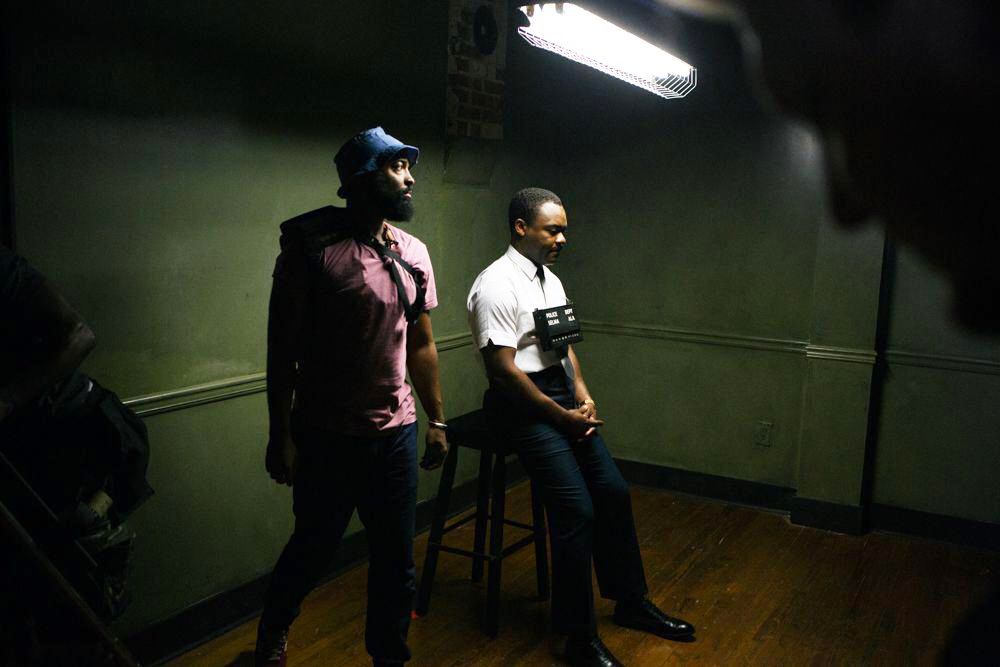 Michael C. here with your weekend review
Michael C. here with your weekend review
Among the many achievements of Ava DuVernay’s tremendous Selma, the biggest may be that it rescues Martin Luther King from canonization as a two dimensional political saint. In the thirty years since Reagan declared a national holiday in his honor, the rough edges have been sanded off King’s legacy, its complexities all but deleted from the public consciousness. The remaining image is a positive but reductive one. To focus solely on King the martyr, standing at the podium, speaking about his dream of a world without prejudice is to gloss over all the messy grunt work that actually went into altering the course of history.
Now we have Selma, which not only restores King’s humanity, but his agency as a shrewd political strategist. The result is a film that doesn’t just bring the 1965 Selma marches blazing out of the history books but reflects current society back at us with riveting urgency.
I can already feel myself fighting a reluctance to go on extolling Selma’s importance for fear it might appear I am awarding the film bonus points for good intentions and right thinking. So let’s be clear: Selma is above all a triumph of filmmaking, proving that tackling Oscar-friendly material need not lead to a finished film that exudes a tepid, play-it-safe attitude. I can’t recall a moment where I found DuVernay’s film falling short, its grasp equal to its considerable reach at every turn.
Like many of the best biographical films, Selma avoids a birth-to-death retelling of King’s life, letting a narrow portion stand in for the whole. DuVernay’s film picks after King has delivered his “I have a dream” speech”, portraying the months when he organized a series of marches from Selma to Montgomery to protest the infringement on voting rights for southern blacks. With the recent passage of the Civil Rights Act ending legal segregation, President Johnson expects a grateful King to refrain from stirring up trouble, but he is dismayed to find King will not be deterred or even delayed. Instead, Dr. King plans to exert pressure on LBJ by goading the worst of the racist southern bullies into attacking peaceful protesters in front of TV cameras so the ensuing horrors can be beamed directly into the homes of sympathetic northern white audiences.
Selma’s portrayal of the appalling violence endured by protesters is heart stopping in its immediacy. I don’t think I will ever forget the image of a policeman on horseback emerging from a tear gas haze brandishing a whip at fleeing protesters. But where a lesser film would see such material as an end on to itself, Selma uses it as the jumping off point to a wider, more complex picture. The film recalls Lincoln in its depiction of the behind the scenes wheeling and dealing that makes historic change possible, but DuVernay's is the sharper, more disciplined affair, lacking Spielberg’s weakness for schmaltzy emotional crescendos. The script by Paul Webb, reworked by DuVernay, doesn’t shy away from making pointed political critiques either. Scenes contrasting King’s organization against a less effective local civil rights group make an unambiguous statement about the need for protests to be media savvy in pursuit of tangible political goals.
Special salute also to Bradford Young’s striking cinematography, which keeps things intimate and visceral, a million miles away from the stilted honey-drenched lighting other “important” films lay on a with a trowel.
 Bradford Young and David Oyelowo on set
Bradford Young and David Oyelowo on set
David Oyelowo’s mighty performance as King dominates the film, as it must, but one of the pleasant surprises of Selma is how generous it is with its expansive cast. Stephen Root, Tessa Thompson, Oprah Winfrey, Wendell Pierce, Giovanni Ribisi, Martin Sheen – this is only a partial list of the actors afforded moments to shine. And in her limited screen time as Coretta Scott King, Carmen Ejogo conveys the range of their relationship as both a marriage and a political partnership.
And then there are Tom Wilkinson and Tim Roth, a pair of old English pros delivering the character actor goods as two very different southern politicians, President Johnson and Alabama Governor George Wallace, respectively. Roth wisely underplays a figure plenty loathsome without any additional hamming and Wilkinson does justice to the sharp writing by mapping out a marvelously nuanced LBJ. The climactic confrontation between LBJ and Wallace is a corker, packed with the tension of unspoken motives and opinions - right up until some of them get said aloud, that is.
David Oyelowo, is a wonder as King but not quite in the way one expects from a great man biopic performance. One is never tempted to drag out the hoary old, “I felt like I was watching the real person!” cliché. He’s close enough to King to be entirely believable, but his performance is not a feat of mimicry. His best moments are not in duplicating the history book highlights, but in showing how that commanding presence transferred to the quieter behind-the-scenes moments - a fraught confrontation with his wife, a sad audience with the father of a slain protester, a tense altercation over the phone with the president. When the actor is given free rein to let loose with a full blast of King’s oratory it is all the more spellbinding for carrying with it the accumulated power of these smaller moments.
It is shocking to reflect that it took until 2014 for such landmark events to be brought to the big screen. It would have been easy in this case for DuVernay to skim the surface and end up with a satisfying film just by depicting the material at all. By choosing to steer the movie into such ambitious territory DuVernay has proven herself a force to be reckoned with. As a portrait of political unrest in action, Selma could not be more relevant. As the arrival of a directorial heavyweight it is essential viewing. Combine all this with a take on a vital segment of modern American history surprisingly under-explored on film thus far and Selma qualifies as a cinematic event.

Grade: A
Oscar Prospects: Across the board
Related Posts | Previous Reviews